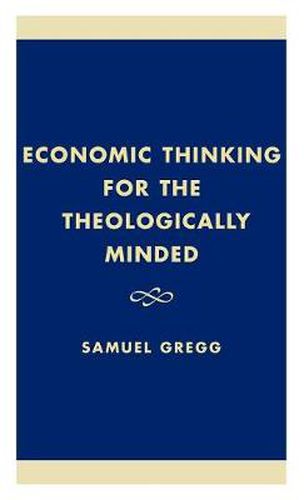Readings Newsletter
Become a Readings Member to make your shopping experience even easier.
Sign in or sign up for free!
You’re not far away from qualifying for FREE standard shipping within Australia
You’ve qualified for FREE standard shipping within Australia
The cart is loading…






Economic Thinking for the Theologically Minded provides an introduction to what has been called the economic way of thinking, which explains some of the critical concepts and foundational assumptions employed in economics. To communicate these ideas effectively to those engaged in theological studies, this book avoids using unnecessary technical terminology. These concepts are then subject to analysis from the standpoint of Christian ethics, with emphasis placed upon the often-unsuspected degree of agreement between economics and Christian belief about the nature of the person. The second half of the book consists of a collection of selections from classical economic texts, representing a range of authors from a variety of schools of thought. These selections have been arranged around ten key concepts, each of which attempts to deepen understanding of various ideas presented in the book’s first half.
$9.00 standard shipping within Australia
FREE standard shipping within Australia for orders over $100.00
Express & International shipping calculated at checkout
Economic Thinking for the Theologically Minded provides an introduction to what has been called the economic way of thinking, which explains some of the critical concepts and foundational assumptions employed in economics. To communicate these ideas effectively to those engaged in theological studies, this book avoids using unnecessary technical terminology. These concepts are then subject to analysis from the standpoint of Christian ethics, with emphasis placed upon the often-unsuspected degree of agreement between economics and Christian belief about the nature of the person. The second half of the book consists of a collection of selections from classical economic texts, representing a range of authors from a variety of schools of thought. These selections have been arranged around ten key concepts, each of which attempts to deepen understanding of various ideas presented in the book’s first half.